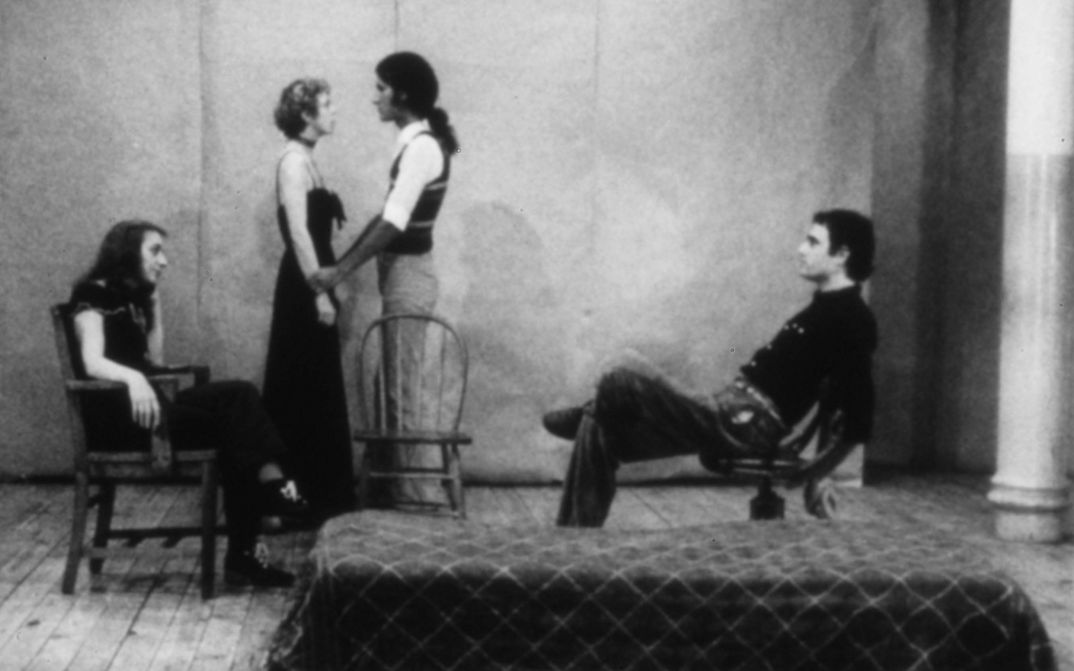Yvonne Rainer

In 1976, the New York dancer, choreographer and filmmaker Yvonne Rainer was represented for the first time at the Berlinale Forum with LIVES OF PERFORMERS (1972) and at the same time she was awarded a DAAD Artists-in-Berlin scholarship. This is when she forged friendships with the filmmakers Cynthia Beatt, who featured in JOURNEYS FROM BERLIN/1971, and Heinz Emigholz, in whose films John Erdman, the main protagonist of LIVES OF PERFORMERS, can often be seen. Arsenal remained an important Berlin point of reference for Rainer (and vice versa): Almost all her films ran as part of the Forum and were acquired by Arsenal Distribution. After MoMA had digitally restored the films, the global rights were acquired by Zeitgeist Films and Kino Lorber. Arsenal can now offer restored versions of the complete oeuvre through this channel.
“My films can be described as autobiographical fictions, untrue confessions, undermined narratives, mined documentaries, unscholarly dissertations, dialogic entertainments,” wrote Rainer about her early works. The change of format from dance to film that took place at that time not only promised new possibilities of self-expression, but also highlighted her fundamental concern: the connection of narration and collage by depriving, for example, melodrama of its identity-forming power through texts and fragmentation. In an article for Texte zur Kunst, Sabeth Buchmann referred to Rainer’s different phases and changes of media in relation to respective states of theoretical reflection: "Thus, the influence of anarchism, psychoanalysis, and structuralism was evident in her early films. Then came an exploration of feminism, queer, and postcolonial theory. Furthermore, Rainer's choreographies shared many of the premises of Minimal Art - an explicit interest in the phenomena of everyday life as well as the question of audience involvement. (...) When Rainer turned exclusively to the medium of film in the 1970s, she expanded the originally favored method of fragmentation to include more narrative moments. The more subject-specific the films became - PRIVILEGE dealt with menopause, MURDER and murder with breast cancer - the more conventional narrative methods made a comeback." (Stefanie Schulte Strathaus)